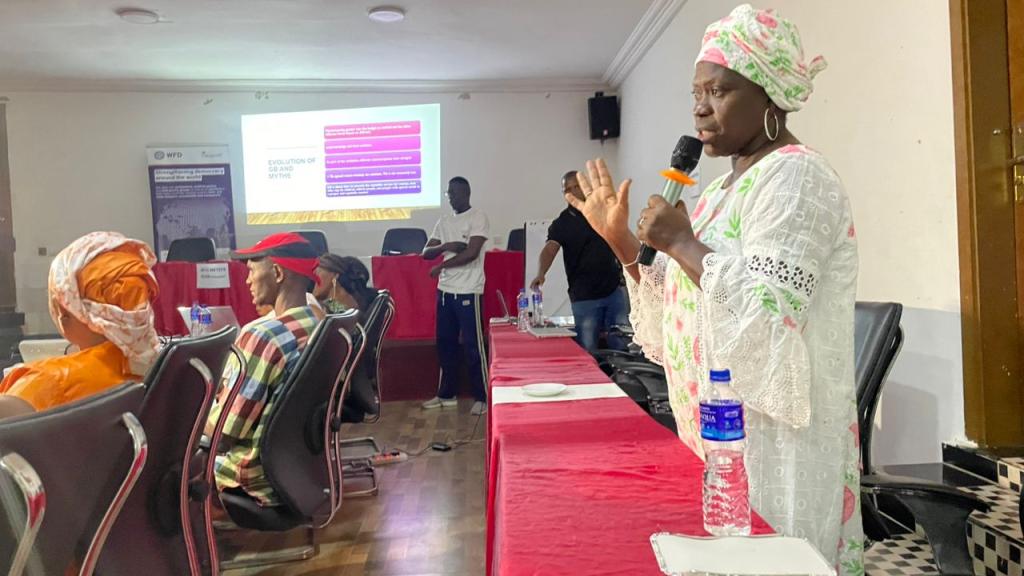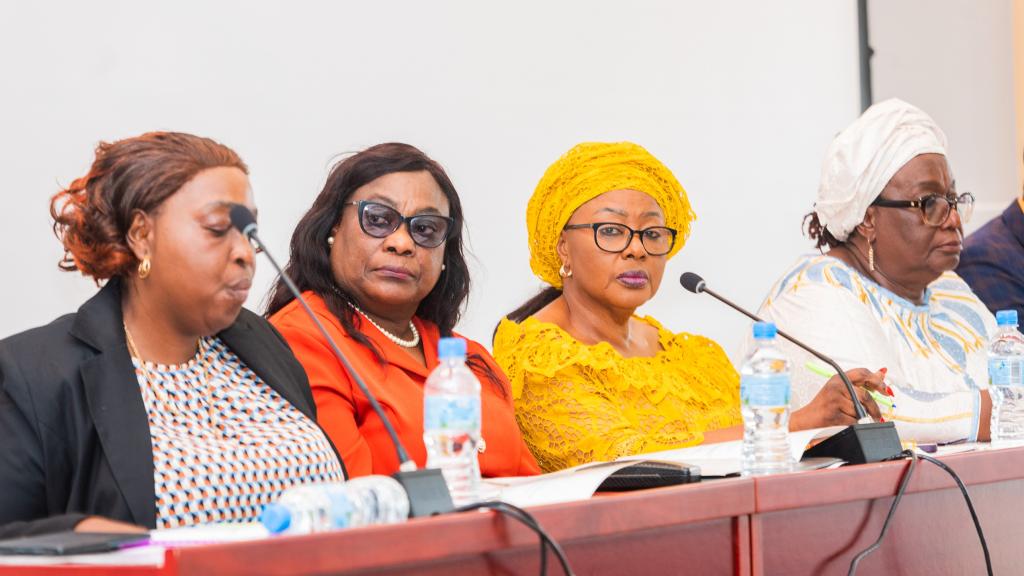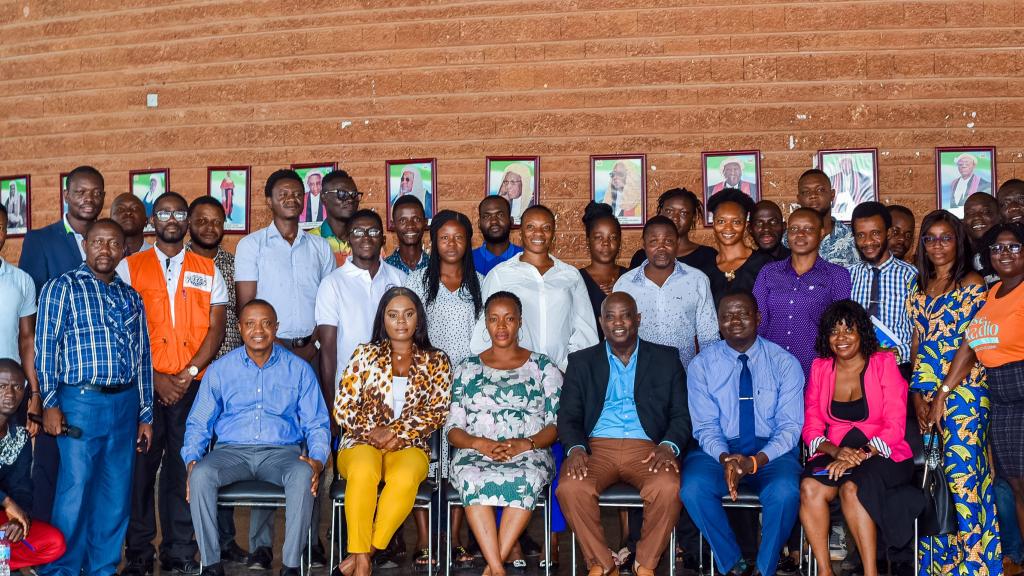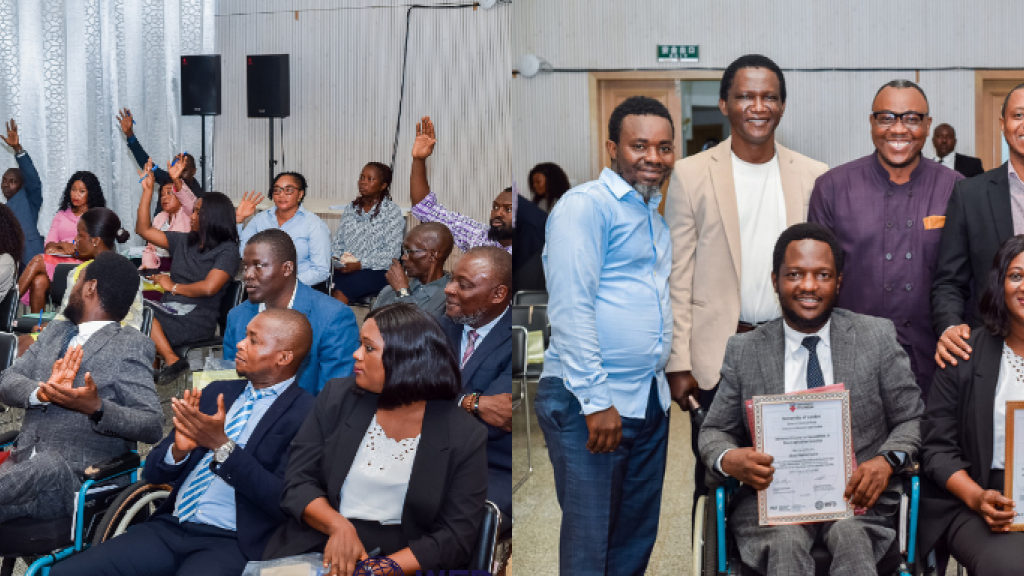Towards more inclusive parliamentary reporting in Sierra Leone
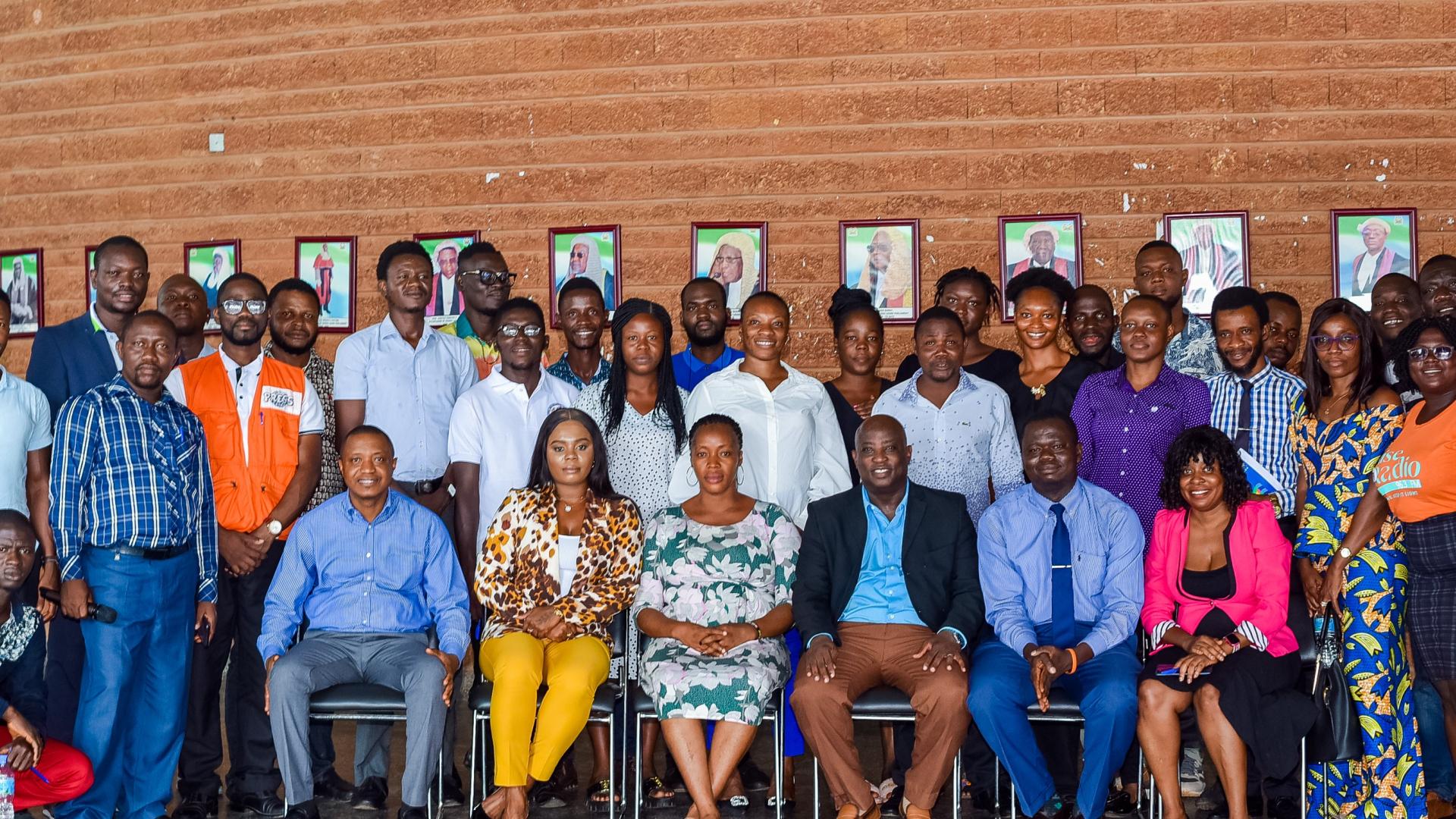
A noteworthy initiative led by WFD, is the specialised professional development training offered to the Parliamentary Press Gallery. This training focuses on gender-sensitive reporting, advocating for gender equality and inclusion, and addressing violence against women in political and non-political spheres.
The tailored training sessions were designed not only to enhance the skills of the parliamentary press gallery but also to equip its members with the knowledge needed to navigate the evolving gender dynamics outlined in the Gender Equality and Women Empowerment (GEWE) Act of 2022. The overarching goal is to instigate a significant shift towards increased coverage of gender-related stories originating from the heart of parliament, providing citizens with quality, reliable information about their democracy. Furthermore, the press gallery can use its skills to disseminate best practices in gender mainstreaming within the media landscape.
"For the first time, we have been engaged to build our capacity in promoting gender-responsive reporting and amplify the voice of women in parliament." - Vivian Momoh, Chairperson of the Parliamentary Press Gallery
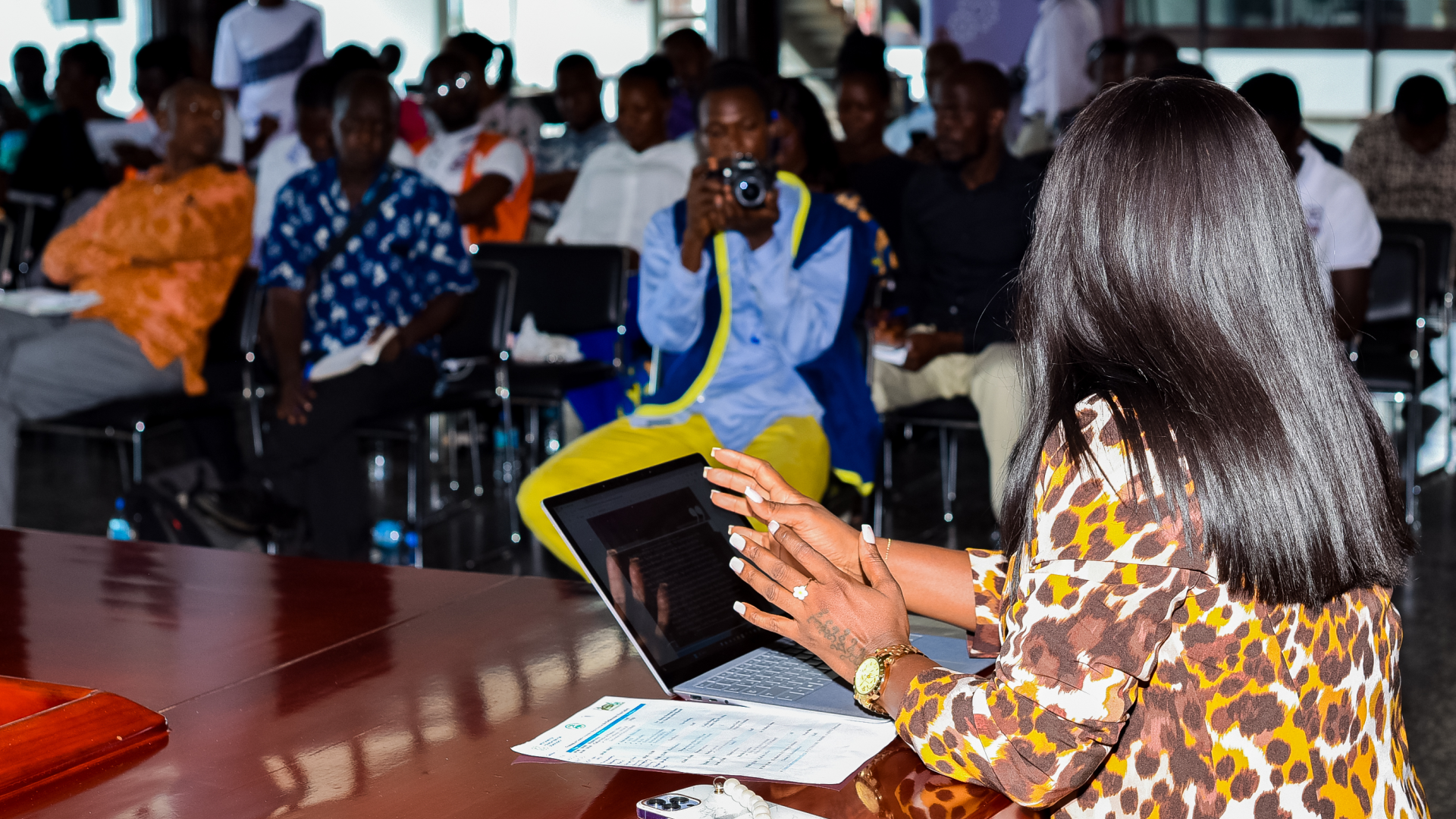
The outcomes achieved through these concerted efforts are both promising and impactful. The formation of alliances stands out as a key success, with the parliamentary press gallery actively encouraging media outlets to establish alliances that actively support the implementation of the Gender Equality and Women Empowerment Act.
One of the notable commitments made by the gallery is the amplification of women's voices within the parliamentary sphere. Additionally, the Parliamentary Press Gallery committed to reporting on the activities of women MPs both within and outside of parliament. This commitment signals a departure from conventional reporting norms, indicating a deliberate effort to highlight the diverse roles and contributions of women in Sierra Leone's political landscape.
However, as with any transformative endeavor, challenges in citizen engagement persist. It is essential to address these challenges to ensure that progress in gender-sensitive reporting results in providing citizens with reliable information about democracy. Such reporting promotes inclusivity, identifies disparities, and supports policies addressing the diverse needs of the population. Ultimately, a democracy valuing gender-related reporting fosters a more equitable and representative governance system, reflecting principles of fairness and social justice. The journey toward transparency, accountability, and gender equality in Sierra Leone's parliamentary processes is an ongoing narrative, one that holds promise for a more inclusive and equitable future.
